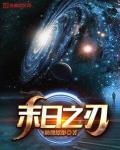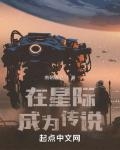Volume 4: Spacetime Singularity Chapter 28: Survival of the Fittest
"You mean to say that the reproduction process of this monster is not to copy itself exactly?"
"Yeah, the difference between them before and after self-replication is too big..."
"So what do you want to ask me?"
"I don't know. Um... I just think this is very strange. I want to know what you think about this matter."
This kind of problem often occurs when studying theory. Many derivations seem correct at first glance, but they make you feel uncomfortable when you think about them carefully, but you can't raise any specific questions.
At this time, you need to find a teacher or senior students to discuss it. They can often point out the points that make people feel uncomfortable.
When it is time to ask questions, you must open your mouth no matter how naive you think the questions are. This is a very important habit for people studying physics .
"Isn't this quite normal? I don't think there's anything to be suspicious about. If anything, this generational difference might prove that they are indeed living things..."
Fang Cheng saw her slowly moving her right index finger towards her mouth as she spoke, intending to bite it. She had occasionally made this move when she was thinking before.
But this time she noticed Fang Cheng's gaze and quickly retracted her hand. After all, picking your lips is not a good habit. It is neither elegant nor hygienic.
"Generally speaking, the differentiated development of generations can stably shape the social division of labor... especially the division of labor brought about by cultural evolution and not guaranteed by genes. As for these non-carbon-based organisms, I don't know whether they have the concept of genetic material... After all, genes are also composed of carbon skeletons. Can metal atoms form polymers?"
Including but not limited to proteins, carbohydrates, and fats. All components that make up living things, regardless of their size or proportion, are based on the structure of carbon-containing molecules.
The alien life that humans imagine cannot escape the framework of "molecules as skeletons". Even silicon-based life was initially imagined to be composed of macromolecules formed by silicon chains. After all, it is in the same family as carbon atoms and theoretically has the possibility of forming macromolecules.
Of course, after the large-scale application of silicon chips and integrated circuits represented by silicon-germanium semiconductors, human imagination of silicon-based life also surpassed the initial analogy of carbon.
Is it correct to imagine silicon-based robots as conscious individuals?
In fact, the most advanced computers made have a very simple structure compared to the human brain.
Although the number of transistors in current CPUs can barely reach the level of human brain neurons, the amount of work that each nerve cell can accomplish requires hundreds or thousands of transistors to simulate.
In the final analysis, a chip is nothing more than a collection of functional circuits. Its ability to effectively complete computing tasks does not mean that it can generate intelligence, because the connections between its internal units only need to form logic gates, which is much simpler than the complex structure between neurons in the human brain..
There is no self-organization in the CPU, no long-range correlation, and no necessary randomness that can play a decisive role in dynamics, let alone large-scale or even global dynamic processes. Strictly speaking, there is no need to consider it as a complex system.
"Does the absence of molecules mean there is no genetic material? Is it possible that there is something wrong with our understanding of genetics..."
"Then I don't know what you understand. I don't understand it anyway. And I can't imagine how it can be encoded without genes. But since there are generational differences, it means that they can have a definite social division of labor."
"Is there a direct relationship between social division of labor and intelligence? It seems that the more complex the brain, the clearer the social division of labor. Is there a correlation between these two concepts?"
"Well, as far as I know..."
Fang Cheng noticed that Ning Yu'an paused briefly when he spoke, then shook his head lightly, as if he was a little proud, but it was impossible to detect it without careful observation.
It’s probably the feeling of “It’s finally my turn to show off.”
"Individual intelligence is more directly related to cognitive, processing, and communication abilities, while division of labor is more of a social issue. It can be said that social division of labor is a manifestation of the complexity of social structure and a result of group intelligence and group game. Work of different complexity is the guarantee for shaping social division of labor..."
Fang Cheng turned his eyes away from the girl beside him and looked at the sea in the distance. Under the deep blue angular water, a school of small yellow croakers could be vaguely seen. This season was the time when these fish were fat.
Although human society is about to end, the society of yellow croakers does not seem to be affected at all. They still go to the coastal waters to forage in spring and return to the deep sea in autumn to spend the winter, eating and drinking as usual.
"Are you still listening?" Ning Yu'an poked his ribs with his finger.
"Listen, listen, go on..."
"From an individual perspective, concepts such as the reproductive system can help us characterize a paradigm and help accurately define the concept of a single organism..."
"What does paradigm mean? I remember it was translated into 'paradigm' in physics, but I don't really understand what it means..."
"I don't understand either. If I knew how to translate it, I wouldn't say the original words."
There was silence for several seconds.
"By the way...how do you know all this stuff about society? Aren't you a medical student?"
"Our college is independent, and it's called the College of Neuroscience. Neuroscience is not under any other discipline, but an independent secondary discipline. The Chinese Academy of Sciences also has a special Institute of Neuroscience, which is in Shanghai. If these things hadn't happened, I would have gone there for an internship during the summer vacation..."
Ning Yu'an also turned her gaze to the sea, and she also discovered the group of yellow croakers under her feet.
"What we learn is very diverse. We have to learn the contents learned in the biology department, as well as some courses on complex systems, and there are all kinds of messy experiments. It feels like my last university class is equivalent to several times of others..."
Students in the Department of Biology already have to study mathematics, physics, chemistry and biology, and the School of Neuroscience has to add on top of that. It must be very hard.
"If the differences between these generations of life are huge, and each generation is more complex than the previous one, does that mean these organisms are evolving rapidly..."
"I... don't know if these 'paradigms' can be called life in the general sense, but if they evolved social structures and social division of labor so quickly, the speed of adapting to the environment is indeed much faster than all known life..."
Survival of the fittest.
If there really were a new life form that was clearly better adapted to Earth's environment than carbon-based organisms, then it would seem natural that they would take over the Earth.
Thinking of this, a twelve-word slogan flashed through Fang Cheng's mind -
Survival of the fittest.






